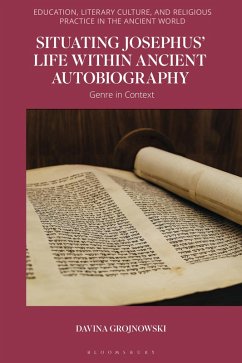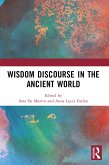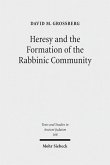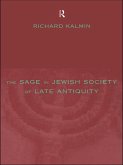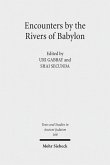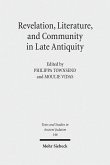Davina Grojnowski examines Life, the autobiographical text written by ancient Jewish historian Flavius Josephus, from a literary studies perspective and in relation to genre theory. In order to generate a framework of literary practices, Josephus' Life and other texts within Josephus' literary spheres-all associated with autobiography-are the focus of a detailed literary analysis which compares the texts in terms of established features, such as structure, topoi and subject. This methodological examination enables a better understanding of the literary boundaries of autobiography in antiquity and illustrates Josephus' thought-process during the composition of Life.
Grojnowski also offers a comparative study of autobiographical practices in Greek and Roman literature, demonstrating the value of passive education supplementing what had been taught actively and its impact on authors and audiences. As a result, she provides insight into the development of literary practices in reaction to various forms of education and subsequently reflects on the religious (self-) views of authors and audiences. Simultaneously, Grojnowski reacts to current discourses on ancient literary genres and demonstrates that ancient autobiography existed as a teachable literary genre in classical literature.
Grojnowski also offers a comparative study of autobiographical practices in Greek and Roman literature, demonstrating the value of passive education supplementing what had been taught actively and its impact on authors and audiences. As a result, she provides insight into the development of literary practices in reaction to various forms of education and subsequently reflects on the religious (self-) views of authors and audiences. Simultaneously, Grojnowski reacts to current discourses on ancient literary genres and demonstrates that ancient autobiography existed as a teachable literary genre in classical literature.

